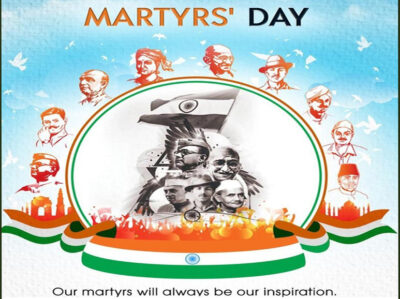Though I was giving a positive message to readers of The Indian Panorama on January 1, 2024, we cannot ignore that over 30 live global conflicts are going on. Millions are displaced; International law is disregarded with impunity as criminal networks profit from division and violence. Terrorists and tyrants are increasing by the day.
Added to this state of world affairs, there are five significant and huge problems the world is facing.
- Climate change and biodiversity loss
- Poverty,
- Water scarcity
- Poor support of health and education,
- Eroding international peace and security.
United Nations (UN) is only truly universal global organization in spite of many critics
Today, global issues transcend national boundaries and cannot be resolved by any one country acting on its own. In addition to its initial goals of safeguarding peace, protecting human rights, establishing the framework for international justice and promoting economic and social progress, in the 8 decades since its creation, the United Nations had added on new challenges, such as AIDS, big data, and climate change.
While conflict resolution and peace keeping continue to be among its most visible efforts, the UN is also engaged in a wide array of activities with an objective to improve people’s lives around the world.
CLIMATE CHANGE: This is one of the major challenges of our times from shifting with weather patterns that threaten food production, to rising sea levels that increase the risk of catastrophic flooding, The impact of climate change is global in scope and unprecedented in scale.
POVERTY: At the current rate of progress, the world is unlikely to meet the global goal of ending extreme poverty by 2030, and estimates suggest that nearly 600,000,000 people will still be living in extreme poverty by the end of the decade.
HEALTH and EDUCATION: A lack of access to education is a large pillar of gender inequality across the world. People with more education are more likely to learn about health and health risks. People with more education live longer, healthier lives than those with fewer years of schooling. Horace Mann (1848)
succinctly stated” education, then beyond all other divides of human origin, is a great equalizer of conditions of men – the balance wheel of a social machinery.” This goes double for women who often make up more than half of the work force in many developing countries.
WATER: Freshwater sustains human life and is vital for human health. It is important to note that there is enough freshwater on the planet for everyone. However, due to bad economics and poor infrastructure, millions of people, (mostly children) die from diseases associated with inadequate access to water, sanitation and hygiene.
Yet 2.1 trillion gallons (30%) of global water is wasted every year, due to leaks or inefficient usage. Israel reuses 85% of its water ranking as the number one country to do so across the globe.
INTERNATIONAL PEACE and SECURITY: Saving succeeding generations from the scourge of war was the main motivation for creating the United Nations, whose founders lived through the devastation of two world wars. There were 110 million people forcibly displaced worldwide at the end of June 2023.
Are we losing?
We could say humanity is winning more than losing – BUT WHERE WE ARE LOSING IS VERY SERIOUS.
Do we have a solution?
Yes.
It will require collaborative efforts among governments, international organizations, universities, NGOs, and creative individuals. World affairs sometimes are depressing but collectively we can overcome them.
What we need is political will, professional will, and people’s will. We need real collaboration with trust.
I would like to end this brief article on enormous problems of the world, with a quote from Dr. Arnold Toynbee.
“It is already becoming clear that a chapter which had a western beginning will have to have an Indian ending, if it is not to end in the self-destruction of the human race… at this supremely dangerous moment in human history, the only way of salvation for mankind is the Indian way—emperor Ashoka’s and Mahatma Gandhi’s principle of non-violence, and Sri Ramakrishna’s testimony to the harmony of religions. Here we have an attitude and spirit that can make it possible for the human race to grow together into a single family– and in the atomic age, this is the only alternative to destroying ourselves.”
(VK Raju is an eminent Ophthalmologist and author. He is founder and President of the Eye Foundation of America which is working for a world without childhood blindness)
